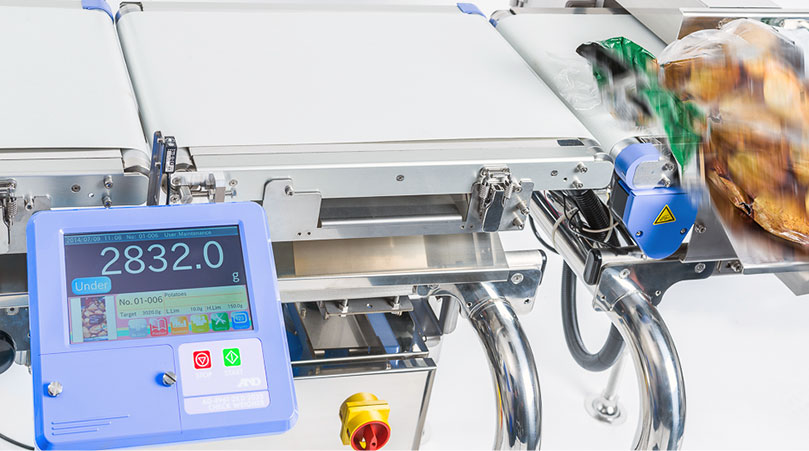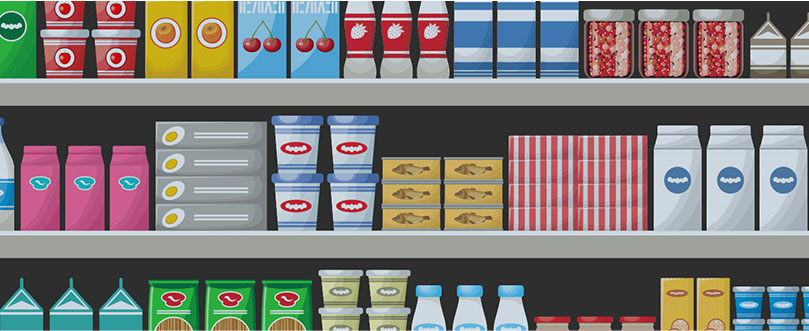A large proportion of Australian packaged food and beverages are sold via major supermarket chains like Coles, Woolworths, Aldi, Costco, IGA etc. Product inspection is a key component of ensuring quality in your manufacturing facility, one you shouldn’t trust to just anyone. Contact A&D today.
Safety Matters – in food production
From raw ingredients to the store shelves, product inspection is a key component of ensuring quality in our food products. Consumers expect high-quality, safe food free from contaminants and impurities.
A large proportion of Australian packaged food and beverages are sold via major supermarket chains like Coles, Woolworths, Aldi, Costco, IGA and others.
Most of the major retail chains have strict QA standards that their manufacturers / suppliers are required to meet, and they perform regular audits against these standards.
Contractual QA obligations have become even more stringent when products are branded as the supermarket’s own label which is understandable, as it is now their name and reputation in the consumer spotlight.
Whilst there can be subtle differences from one supermarket to another, most these QA systems are based on long-established and globally recognised BRC (British Retail Consortium) standards for food manufacturers. They are obviously very detailed and cover far more than just Product Inspection, but when it comes to checkweighing, metal detection and X-Ray Inspection, there are specific guidelines that have to be followed.
The team at A&D are fully versed in these requirements and our Inspection Systems and product rejection/quarantine options are designed not just to meet, but exceed these requirements. Other quality management systems follow guidelines set by programs such as HACCP and more locally HARPS, which is more specifically aimed at fresh produce/horticulture processing & packing sector.
Fail-Safe mechanisms
“Fail-Safe” is a common term that gets discussed when designing a supermarket compliant inspection & reject system, and primarily revolves around ensuring that a non-compliant product is confirmed as “rejected” and more importantly, if it is somehow missed by the reject system, that a secondary alarm/action is triggered.
These fail-safe mechanisms take several forms but common ones are “air pressure monitoring, reject bin full alarm, and rejection confirmation. Chat to the A&D Inspection team about specific requirements to suit your pack formats and speeds.

Why Trust A&D with your Inspection?
- Product inspection is a key component of ensuring quality in your manufacturing facility, one you shouldn’t trust to just anyone.
- A&D is an established global company that has been a trusted provider of long-lasting and reliable measurement instrumentation for over 40 years.
- A&D provides checkweighers and metal detectors suitable for direct food contact, meeting Australian food standards.
- Our systems can handle the environment and are designed to deliver reliable and repeatable results, and they are commonly used throughout the food and beverage industry today.
- Our intuitive software and user interface is easy to configure, making product changeover as simple as pressing a button.
Get an expert’s opinion on how you can improve your product inspection.
Useful Links
BRC standards – https://www.brcgs.com
HARPS standards – https://harpsonline.com.au
NMI AQS detailed information – https://www.industry.gov.au/data-and-publications/guide-to-the-average-quantity-system-in-australia/average-quantity-system

AQS (Average Quantity System)
Whilst not part of food safety/QA, most Australian food manufacturing companies would have heard of the “Average Quantity System” or AQS as its popular acronym. A&D checkweighers can be setup to run products under AQS which can be a little daunting to those that have never been introduced to the system.
We have listed a link below to the Australian Government (NMI) page detailing everything about AQS, including who/when/what type of manufacturing it can apply to, but if you want just a simple summary, here are the key points:
AQS Overview – AQS is designed to help packaged food producers to reduce the amount of overfill or “give away” on packaged items whilst maintaining consumer confidence that products meet legal minimum weight requirements as outlined by the Commonwealth Government’s National measurement Institute (NMI Australia). Consumers can immediately identify what products have been packed under AQS guidelines as the pack will be marked with an “e” symbol next to the weight.
AQS Rules – Three main rules apply to an AQS based manufacturing system:
- The average net contents of a sample from a production run of pre-packed articles cannot be less than the stated quantity marked on the packaging.
- Allowance is made for a small number of packs to exceed a tolerable deficiency (defined as “T1”)
- No packs in the sample can have more than twice the prescribed tolerable deficiency (defined as “T2”)
If you want read further on ‘How the Average Quantity System / E-Weights Works’, or to view a video explanation from Julian Horsley, click on this link here

